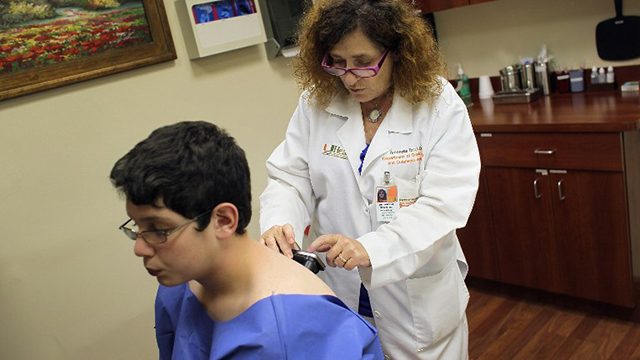SUMMARY
This is AI generated summarization, which may have errors. For context, always refer to the full article.

JERUSALEM – Israeli scientists have uncovered how the most severe form of skin cancer spreads to other organs in a discovery that could revolutionize treatment of the disease, they said Tuesday, August 23.
Researchers at Tel Aviv University found that melanoma, the most aggressive of all skin cancers, was able to send out tiny vesicles – small cysts or blisters – containing the disease to other parts of the body.
They were then able to develop substances to prevent the spread of the disease, which “may serve as promising candidates for future drugs” the researchers said in a statement.
“Our study is an important step on the road to a full remedy,” lead researcher Carmit Levy wrote.
“We hope that our findings will help turn melanoma into a non-threatening, easily curable disease,” she added.
“The threat of melanoma is not in the initial tumor that appears on the skin,” wrote Levy, of the university’s Department of Human Molecular Genetics and Biochemistry.
“Rather (the threat is) in its metastasis – in the tumour cells sent off to colonize in vital organs like the brain, lungs, liver and bones.
“We have discovered how the cancer spreads to distant organs and found ways to stop the process before the metastatic stage,” Levy added.
The research was published in the Nature Cell Biology scientific journal and carried out in conjunction with German cancer specialists and others.
Melanomas are usually black or brown marks on the skin.
If caught in early stages, survival rates are relatively high but once it spreads it is often fatal.
In the United States, more than 75,000 melanomas are expected to be discovered this year, with more than 10,000 people dying as a result, according to the American Cancer Society. – Rappler.com
Add a comment
How does this make you feel?
There are no comments yet. Add your comment to start the conversation.